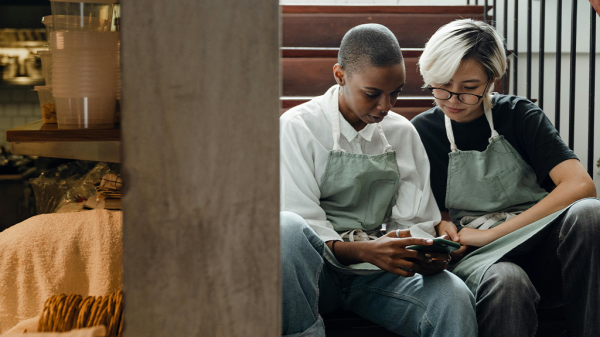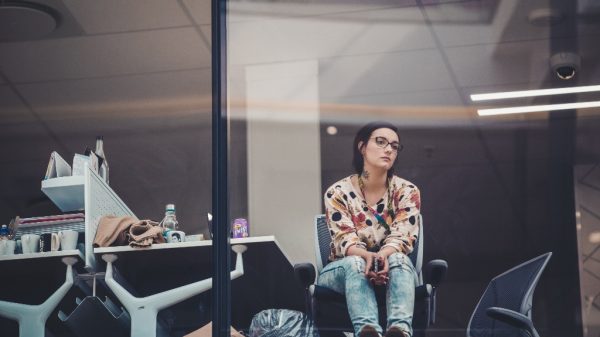A new thought
When most people think of artificial intelligence (AI), they picture one of the movie versions: either a perfectly sculpted humanoid robot who can think, feel, and learn better than humans, or a voice in a machine that knows better than we do.
![]()
In both cases, the AI is a separate entity, and we seem to have only two options for interaction: ask the infinitely wise AI for guidance, or be killed. Even in the real world, we often think of AI as a threatening, up and coming replacement for human workers: an enemy, rather than an ally.
AI advocates
But there’s a growing, vocal group of AI believers that advocate for collaboration. Tesla and SpaceX founder Elon Musk has openly promoted the idea of a neural lace, which would merge human brains with AI power, and he even took the matter into his own hands by founding a new startup, Neuralink, devoted to achieving human-AI harmony.
And in a recent TED Talk, Siri co-founder Tom Gruber discussed his own vision for the future of artificial intelligence.
That future includes a positive symbiosis, rather than straight up world domination.
In Gruber’s view, computers should primarily be used to help out humans where we need help, as Siri is supposed to, which means the stuff we’re bad at and the stuff we could be better at. So, like, everything?
Memory
Specifically, Gruber pointed to memory as an area where humans have a lot of room for improvement. He envisions a future where an AI (maybe through that neural lace thing?) keeps track of all aspects of our lives. We could remember every person we’ve ever met, and everything we learn about them – from family members to food allergies.
“I believe AI will make personal memory enhancement a reality. I think it’s inevitable,” said Gruber.
Every time we hear the word “track” or “record” or “log” or anything else that means hoarding data, those privacy alarm bells inevitably go off, and with good reason. Let’s stick to the socializing example: if everyone you meet gets recorded, your boss could see that you’ve had lunch with a competitor; your spouse could see that you’ve been spending time with an ex; your annoying family members could see that you do have time to sit and visit, just not with them.
The possibilities for brand new social faux pas are endless, and serious privacy breaches are almost inevitable.
We’ve seen in recent years that no matter how impossible our passwords are to remember, there’s someone out there who can and will steal our info.
Gruber also imagines this memory enhancement as a cure, or palliative treatment of sorts, for those with diseases like dementia and schizophrenia. “It’s the difference between a life of isolation and one of dignity and connection,” he said.
Most importantly, he said that the use of AI-enhanced memories will be up to us.
“We get to choose what is and is not recalled. It’s absolutely essential that this be kept very secure.”
Does that mean we would turn the feature on, so to speak, when meeting someone new or attending a lecture or learning a language? And then turn it off and return to our now wimpy-feeling regular memory capacity? Or is everything recorded, and then it’s up to us to go in and wipe our memories, Eternal Sunshine-style, of anything we don’t want to remember?
AI future
One thing, at least, is clear. The wind is changing, and those who resist this kind of cyborg-y augmentation may face an impossibly steep curve when attempting to compete with AI-human fusions that think and act more efficiently.
How will we, as a global culture and as a race, deal with the creation of our own sub-species? Maybe we should ask Siri.
#AIMemory
Staff Writer, Natalie Bradford earned her B.A. in English from Cornell University and spends a lot of time convincing herself not to bake MORE brownies. She enjoys cats, cocktails, and good films - preferably together. She is currently working on a collection of short stories.










































Pingback: As machine learning advances what role will humans play in marketing? - The American Genius
Pingback: Should web designers be wary of the AI takeover? - The American Genius
Pingback: The future of quantum computing is “Azure” bright and you can try it